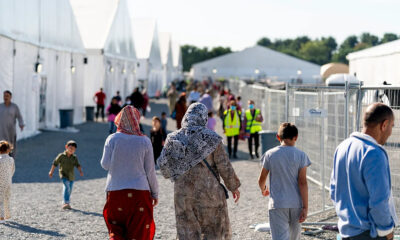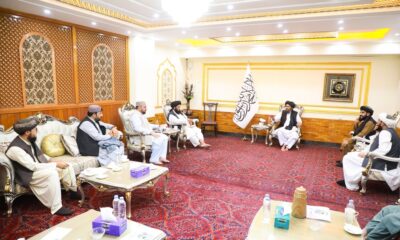Latest News
Zarif meets with UN envoys for Yemen and Afghanistan
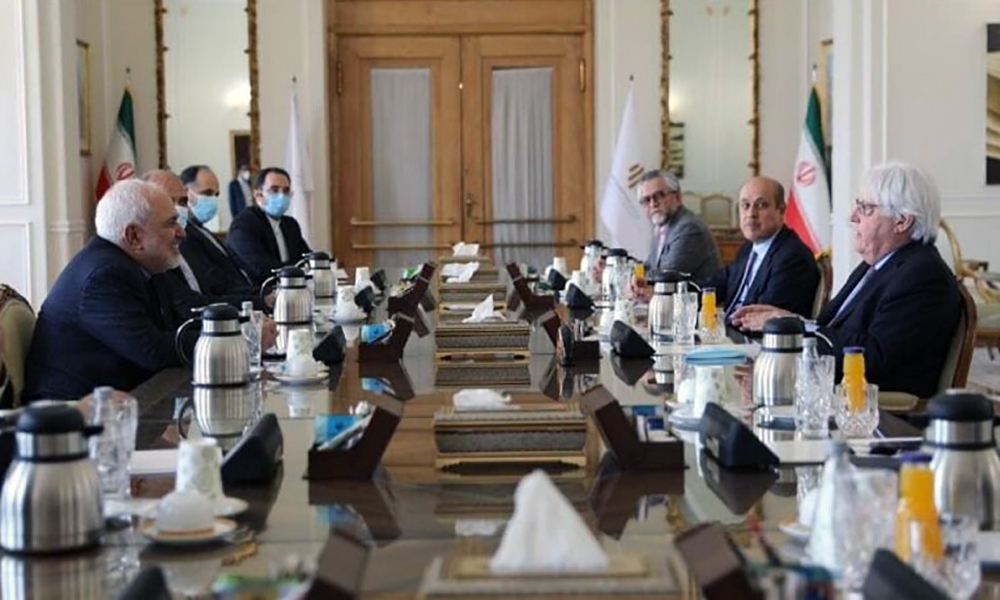
Iranian Foreign Minister Mohammad Javad Zarif met with UN Secretary-General’s Personal Envoy on Afghanistan Jean Arnault and Martin Griffiths, the UN special envoy for Yemen.
Zarif and Arnault discussed the developments in Afghanistan. During the meeting, Zarif explained the views of the Islamic Republic of Iran on Afghanistan, especially peace and security in the country as well as the peace process led by Afghans.
The foreign minister also underlined Iran’s support for intra-Afghan talks and protection of the achievements of the Afghan people in recent years, especially in the field of fundamental rights, according to a statement put out by the Iranian Foreign Ministry.
Arnault, for his part, pointed to the importance of Afghanistan’s neighbors and said that he began his regional trip by visiting Iran. The UN official pointed out that the problem of Afghanistan can be solved through collective actions and the focus of his efforts is to find a way to this collective cooperation.
The Tuesday meeting came in continuation of Iran’s diplomatic efforts to push forward the Afghan peace process.
Mohammad-Ebrahim Taherian, the Iranian foreign minister’s special envoy for Afghanistan, held phone talks with Abdullah Abdullah, the head of Afghanistan’s High Council for National Reconciliation (HCNR), on the country’s developments and the visit to Tehran of the UN secretary general’s personal envoy on Afghanistan.
In the Tuesday phone call, Abdullah called for continued support for the country’s peace process.
Taherian, in turn, underlined Iran’s support for the Afghan peace process and efforts made within this framework.
He also stressed the need for more interaction among various groups in the country in order to accelerate the move toward peace.
Zarif also met with the UN envoy for Yemen. At the meeting, Zarif and Griffiths discussed the various dimensions of the Yemeni crisis and ways to achieve peace and stability in the country, according to a separate statement issued by the Foreign Ministry.
Elaborating on the Islamic Republic’s view on how to end the conflict in Yemen, the Iranian foreign minister pointed to the developments that followed the crisis in the country and stressed the need to lift the siege on the Yemeni people and facilitate the provision of humanitarian aid to the Yemenis.
Explaining the principled view of Iran that war is not the solution to the Yemeni crisis, Zarif stressed that only through political dialogue and peaceful means the current miserable situation in Yemen can be brought to an end.
Griffiths, for his part, briefed Zarif on the outcome of his talks with the relevant parties on the Yemeni crisis.
Latest News
Trump administration to end protection program for Afghans
Over 8,000 Afghans were approved for TPS as of last year, according to federal statistics.
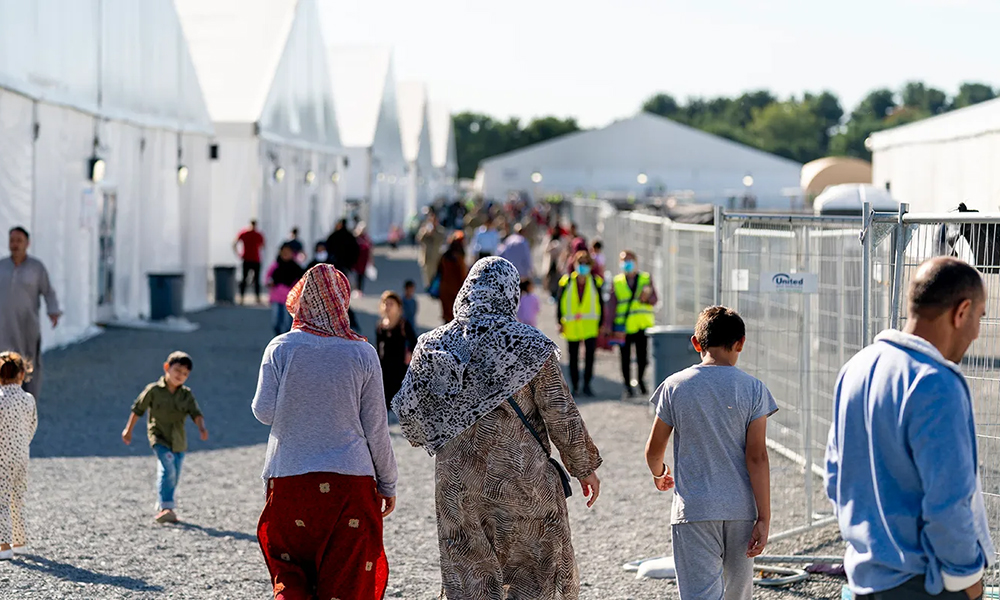
The Trump administration is ending the Temporary Protection Program that offered deportation protection to thousands of people from Afghanistan.
The Department of Homeland Security said Monday it will end the program on July 12.
The TPS program allows migrants to get work permits and temporary reprieve from deportation if the U.S. government determines it is unsafe for them to return to their home countries due to war, natural disaster or other issues.
Over 8,000 Afghans were approved for TPS as of last year, according to federal statistics.
TPS was last extended for Afghanistan in 2023, and it was set to expire in May unless the Trump administration chose to grant another extension.
“This decision is unconscionable and will have long-lasting ripple effects,” #AfghanEvac, a group that helps relocate Afghans, said in a post on X.
International Sports
IPL 2025: Tournament resumes Saturday
The remainder of the IPL matches will be played across six venues; venues for the four play-off ties and the final on 3 June will be announced later

The Board of Control for Cricket in India (BCCI) has decided to resume the Indian Premier League (IPL) following the recent ceasefire agreement between New Delhi and Pakistan.
The tournament was suspended last week due to clashes between the two neighboring countries. However, the BCCI said on Monday night it will resume matches from this Saturday, May 17 and the tournament will run through until June 3.
The BCCI said in a statement late Monday that “after extensive consultations with government and security agencies, and with all the key stakeholders, the board has decided to proceed with the remainder of the season.”
The remainder of the IPL matches will be played across six venues, and Royal Challengers Bengaluru will host defending champions Kolkata Knight Riders on Saturday followed by one of two double-headers Sunday.
Jaipur, Delhi, Lucknow, Mumbai and Ahmedabad are the other host cities for the remaining league phase matches.
The venues for the four play-off ties, including the final on 3 June, will be announced later.
The original hosts for the playoffs were Hyderabad and Kolkata, with the final at Eden Gardens on 25 May.
The first qualifier will now be on 29 May, followed by the eliminator on 30 May. The second qualifier is slated for 1 June and the final two days later.
The IPL was suspended for a week last Friday, a day after a match between Punjab Kings and Delhi Capitals was abandoned in Dharamsala, less than 200 kilometres from the northern city of Jammu, where explosions were reported hours earlier.
A special train was arranged for players to return to Delhi on Friday as airspace was closed, while overseas stars began to head home on Saturday.
Cricket Australia (CA) meanwhile said in a statement on Tuesday that their players were shaken by the events that led to suspension of the 18th edition of the tournament. /”
As a result, the board has left it to the players to decide whether they want to return or not, even for the players who will have little time to prepare for the World Test Championship (WTC) 2025 final against South Africa which starts just a week after the IPL 2025 final.
“Cricket Australia will support players in their individual decisions whether to return to India or not,” CA said in a statement.
“Team management will work through preparation implications for the World Test Championship final for those players who choose to play in the remaining IPL matches.
“We are maintaining communication with the Australian Government and BCCI around security arrangements and safety.”
WTC-bound players
Australia’s WTC 2025 final-bound players in the IPL 2025 are Delhi Capitals’ (DC) Mitchell Starc, Punjab Kings’ (PBKS) Josh Inglis, Royal Challengers Bengaluru’s (RCB) Josh Hazlewood and Sunrisers Hyderabad’s (SRH) Pat Cummins and Travis Head.
Hazlewood is unlikely to return to India as he picked up a shoulder injury. According to an Australian media outlet, Starc’s manager said that the left-arm pacer may also not return to India for the remainder of the tournament.
Australian SRH players will have plenty of time to return and prepare for the WTC final as their last league match is on May 25. The finalists of the previous edition are already out of the playoffs race.
Fans across Afghanistan can meanwhile tune in to Ariana Television from Saturday to watch all the remaining matches live. Fans can also follow Ariana News and Ariana Television’s social media pages for updates, news and revised schedules.
Latest News
Domestic investors eye $650 million investment in Hajigak iron mine
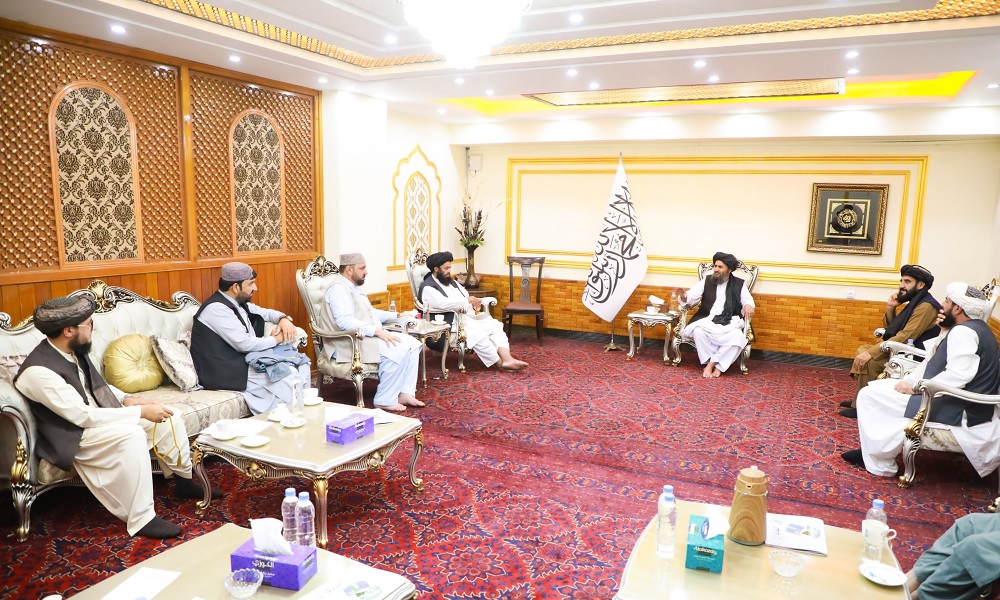
A number of domestic investors have announced plans to invest $650 million in three phases for the exploration and extraction of one of the blocks in the Hajigak iron mine.
The announcement was made during a meeting on Monday with Mullah Abdul Ghani Baradar, Deputy Prime Minister for Economic Affairs, who welcomed the initiative and reaffirmed the Islamic Emirate’s full support for such investments.
According to the investors, the project will be implemented in partnership with a foreign company and carried out using professional and modern mining standards. In addition to extraction, the plan includes the establishment of a sponge iron processing plant within Afghanistan, equipped with advanced technology and compliant with international standards.
The facility is expected to process up to 9,000 tons of sponge iron daily, converting it into steel billets to meet Afghanistan’s domestic demand for iron products. The project is also projected to create 6,000 direct jobs, contributing significantly to the local economy.
Mullah Baradar instructed the Ministry of Mines and Petroleum to collaborate closely with the investors and to regularly report on the project’s progress. He reiterated the government’s commitment to supporting initiatives that foster economic growth and self-reliance in the mining sector.
-

 Sport5 days ago
Sport5 days agoAriana Television to broadcast 4th edition of Afghanistan Futsal Premier League
-
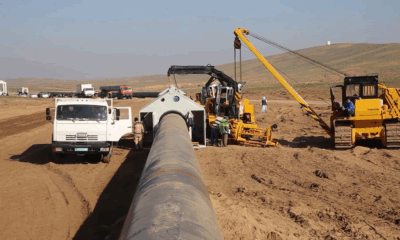
 Latest News5 days ago
Latest News5 days agoTAPI pipeline to reach Herat by end of 2025: Ministry
-
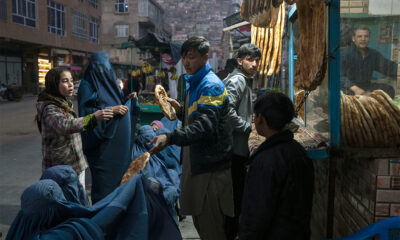
 Latest News5 days ago
Latest News5 days agoNearly one-third grapple with hunger in Afghanistan: WFP
-

 Sport5 days ago
Sport5 days agoIPL 2025: Dharamsala match abandoned due to security concerns
-

 Regional4 days ago
Regional4 days agoIndia says military stations attacked by Pakistan drones and missiles
-
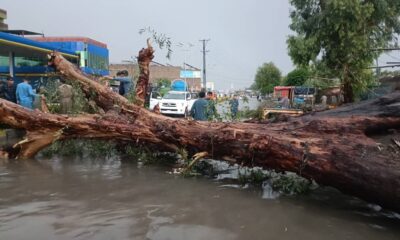
 Latest News4 days ago
Latest News4 days agoOne dead, dozens injured as powerful storm strikes Jalalabad, Afghanistan
-

 Latest News4 days ago
Latest News4 days agoEx-Afghan deputy speaker Qadeer back in Kenyan court for criminal case
-
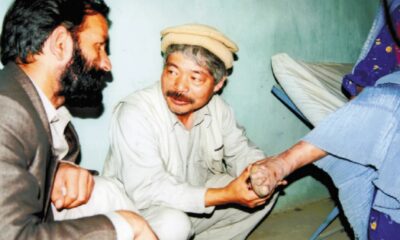
 Health4 days ago
Health4 days agoJapanese charity Peshawar-Kai to resume leprosy treatment in Afghanistan


